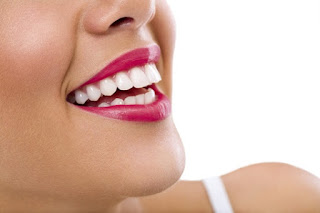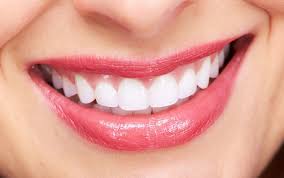Bruxism Solutions: Dental Appliances for Teeth Grinding
Bruxism, the involuntary grinding or clenching of teeth, is a common condition that can lead to significant dental and health issues. Often occurring during sleep, bruxism can cause enamel wear, tooth fractures, jaw pain, and headaches. Best Dental Appliances Clinic Dubai are a key component in managing and alleviating the effects of bruxism. Here’s a comprehensive guide to understanding bruxism and the dental appliances designed to provide relief.
1. Understanding Bruxism:
Bruxism is characterized by the grinding or clenching of teeth, which can happen during the day (awake bruxism) or at night (sleep bruxism). It may result from various factors, including stress, anxiety, misaligned teeth, or an abnormal bite.
Symptoms of Bruxism:
- Tooth wear or damage
- Jaw pain or stiffness
- Headaches or migraines
- Increased tooth sensitivity
- Discomfort in the temporomandibular joint (TMJ)
Causes of Bruxism:
- Stress or anxiety
- Misaligned teeth or bite issues
- Sleep disorders
- Certain medications or substances (e.g., caffeine, alcohol)
2. Dental Appliances for Managing Bruxism:
Dental appliances are designed to protect teeth from the effects of grinding and to alleviate associated symptoms. The main types of dental appliances used for bruxism include:
1. Night Guards:
Night guards, also known as occlusal splints or bite guards, are one of the most common solutions for managing bruxism. They are worn over the teeth during sleep to prevent direct contact between the upper and lower teeth.
Benefits of Night Guards:
- Protects Teeth: Provides a cushioning effect, reducing the risk of enamel wear, fractures, and other damage caused by grinding.
- Reduces Jaw Tension: Helps to relieve muscle strain and discomfort associated with bruxism.
- Improves Sleep: By minimizing the effects of grinding, night guards can contribute to better quality sleep.
Types of Night Guards:
- Soft Night Guards: Made from flexible materials, these are suitable for mild to moderate bruxism and provide cushioning to the teeth.
- Hard Night Guards: Made from rigid materials, these offer more protection and are ideal for severe bruxism. They are more durable and can withstand significant grinding forces.
- Dual-Laminated Night Guards: Combining a soft inner layer with a hard outer layer, these provide a balance of comfort and durability.
Considerations:
- Custom-Fitted vs. Over-the-Counter: Custom-fitted night guards, made by a dentist using impressions of your teeth, generally offer a better fit and increased effectiveness compared to over-the-counter options.
- Comfort: Proper adjustment is crucial to ensure comfort and effectiveness.
2. Occlusal Splints:
Occlusal splints are designed to create a protective barrier between the upper and lower teeth. They can also help in realigning the bite to reduce bruxism symptoms.
Benefits of Occlusal Splints:
- Distributes Bite Forces: Helps to evenly distribute the forces exerted by grinding, reducing the impact on individual teeth.
- Alleviates TMJ Symptoms: Can reduce pressure on the TMJ and associated muscles, providing relief from jaw pain.
Considerations:
- Custom Fabrication: Occlusal splints are typically custom-made by a dentist to ensure an accurate fit and optimal function.
- Adjustments: Regular adjustments may be needed to maintain effectiveness and comfort.
3. Repositioning Appliances:
Repositioning appliances are used to adjust the position of the jaw to a more relaxed and natural alignment. They can help alleviate symptoms related to bruxism by improving occlusion and reducing muscle strain.
Benefits of Repositioning Appliances:
- Improves Jaw Alignment: Helps to position the jaw in a more comfortable and functional position.
- Reduces Grinding: By realigning the bite, these appliances can help reduce the urge to grind teeth.
Considerations:
- Customization: These appliances must be tailored to your specific dental structure and needs.
- Ongoing Monitoring: Regular follow-ups with your dentist are necessary to assess effectiveness and make adjustments.
3. How to Choose the Right Appliance:
When selecting a dental appliance for bruxism, consider the following factors:
- Severity of Bruxism: The type of appliance needed may vary depending on the severity of your bruxism. Mild cases may benefit from softer night guards, while severe cases may require hard or dual-laminated guards.
- Comfort and Fit: A properly fitting appliance is crucial for comfort and effectiveness. Custom-fitted appliances generally provide the best results.
- Consultation with a Dentist: A dental professional can assess your specific condition and recommend the most appropriate appliance for your needs.
4. Maintenance and Care:
Proper care and maintenance of your dental appliance are essential to ensure its effectiveness and longevity:
- Cleaning: Rinse the appliance with cool water after each use and clean it with a mild soap. Avoid using hot water or abrasive cleaners.
- Storage: Store the appliance in a ventilated case to prevent bacterial growth and maintain its shape.
- Regular Inspections: Periodically check the appliance for signs of wear or damage and replace it as needed.
5. Conclusion:
Dental appliances are a vital tool in managing bruxism and protecting your oral health. Whether you opt for a night guard, occlusal splint, or repositioning appliance, choosing the right device and ensuring proper care are key to alleviating symptoms and preventing further damage. Consult with your dentist to determine the best solution for your bruxism and to receive personalized recommendations and treatment.



Comments
Post a Comment